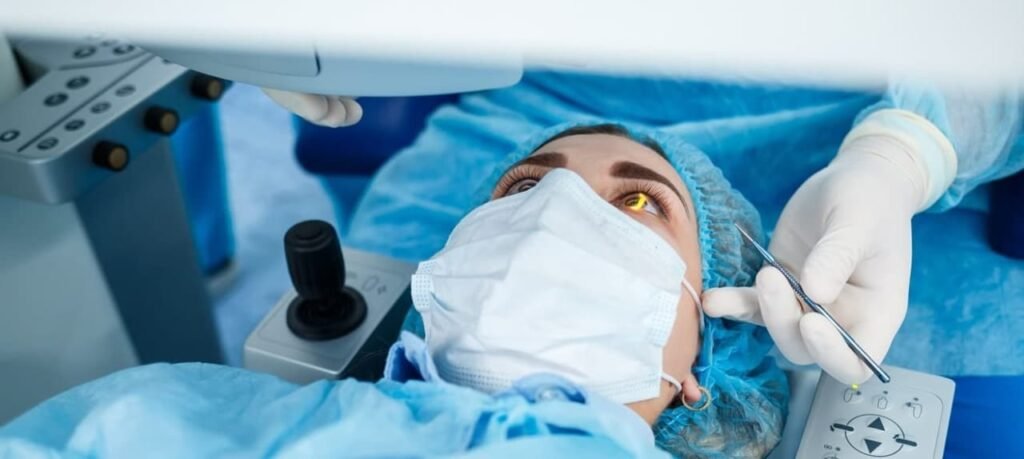Until anything goes wrong, many individuals don’t give their eyes much thought. However, eye exams are essential to preserving long-term vision and general health, just like regular dental or physical examinations. Frequent eye expert visits can aid in the early detection of abnormalities before symptoms become apparent. These examinations are a crucial component of preventative healthcare that is sometimes disregarded until it is too late, regardless of whether you wear glasses or have perfect vision.
Detecting Vision Problems Early
It’s possible for conditions like astigmatism, nearsightedness, and farsightedness to progressively worsen without you noticing. Doctors can update your prescription lenses or suggest remedies during eye exams before vision loss interferes with your day-to-day activities. Additionally, early detection avoids headaches, eye strain, and subpar performance at work or school. If detected early enough, a slight discomfort could be the precursor to a more serious problem that can be treated right away.
Preventing Progressive Eye Diseases
A number of eye conditions, including macular degeneration, cataracts, and glaucoma, develop gradually and without noticeable symptoms. It’s possible that irreversible visual loss has already happened by the time symptoms show up. Tests like intraocular pressure monitoring and retinal inspection, which are part of routine eye exams, can identify these disorders early on. Prevention is always preferable.
The Link Between Eye Health and Overall Health
Did you know that diabetes, hypertension, and even some forms of cancer can be detected by a straightforward eye exam? Eye experts can identify systemic disorders during normal checkups by observing blood vessel alterations or damage to the optic nerve. In many respects, an eye exam is a more comprehensive health examination than merely a visual examination.
Children and Eye checkups
Children’s learning, behavior, and self-esteem can all be impacted by untreated visual issues. Before school begins, pediatric eye exams are particularly crucial to make sure your child can see the board properly and develop normally. Keep an eye out for symptoms such as holding books too close, squinting, or regular headaches. It is easier to address these problems with glasses, exercises, or other therapies the earlier they are identified.
Adults and Seniors
The frequency of your eye checkups depends on your age and health.
- Adults under 40: every 2–3 years
- Ages 40–60: every 1–2 years
- Over 60 or with risk factors: annually
Diabetes, a family history of eye disease, or prior eye surgery are risk factors. As risks rise with age, routine visits guarantee prompt intervention, making prevention even more important.
What to Expect During a Comprehensive Eye Exam
A full eye exam isn’t just about reading letters on a chart. It includes a range of tests:
- Visual acuity check
- Refraction assessment
- Eye muscle and pupil response
- Slit-lamp examination
- Dilated eye exam for retina and optic nerve health
Why Choosing a Reputed Eye Hospital Makes a Difference
Not every eye clinic is made equally. Reputable eye hospitals make investments in cutting-edge diagnostic equipment, hire skilled professionals, and uphold stringent hygienic standards. Whether you’re there for surgery or just a normal checkup, this can have a big impact on the quality and result of your care.
Panipat has become a center for modern eye treatment in North India. With its combination of skilled professionals, modern technology, and patient-focused care, the city attracts all types of patients. If you’re looking for reliable vision care, the best eye hospital in panipat offers comprehensive services and outcomes that are reliable.
Vision is something we rely on every moment of our lives, yet it often doesn’t get the attention it deserves. Regular eye checkups can make all the difference, catching diseases early, managing chronic conditions, and preserving the quality of your life.

